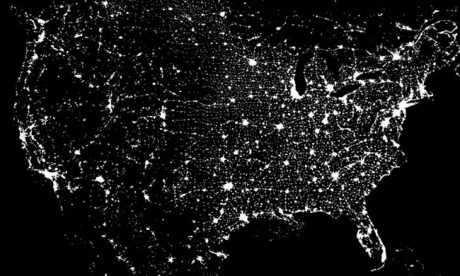Nationwide broadband 'not a priority'? Just ask the kids

As colleague Sam Diaz reports this morning, a survey by the Pew Internet and American Life Project finds that over half of US citizens believe that nationwide high-speed broadband is not a priority, and in some cases "efforts to expand broadband should be abandoned". Only 40% said the issue was a top priority.
The thing that grabbed my attention was the demographic details. Different generations will believe different things - and had more focus been divided between older and younger generations, I strongly suspect the figures would be different.

The problem with survey research like this is the sampling data that is used. Respondents were over the age of 18 which makes survey permissions far easier to deal with, yet had they branched out to an even younger demographic by seeking parental permission, the results would have been totally different.
But flip this round again to a different way of thinking. This survey wasn't an election, nor was it a battle for a winning argument. Just because 'only' 40% say that broadband should be rolled out nationwide and at high-speeds to compete with other countries, along with to boost industry and development - it doesn't mean that the 52% against necessarily win. 40% may not be the majority, but it's certainly a significant minority, and I can almost guarantee that the vast majority of this 40% will be in urban environments.
The US is lagging behind in broadband speeds. I know - I've been there. And the United Kingdom isn't that much better, even though at home as I write this I enjoy the delights of 17mbps broadband. But I live in a city and about 200m away from the telephone exchange, while the rest of my family cope with 1.5mbps speeds where they live in north Nottinghamshire in a village in the middle of Sherwood Forest. Literally.
The US government says 100 million Americans do not have broadband. The report author argued that non-users may be reluctant about "a government promoting a technology that they don't use" nor "see the clear benefit to them".
As broadband becomes a 'legal right' in some countries, along with electricity, water and gas supplies, one wouldn't dream of having a limited water supply which only kicks out a pint of water a day. Why should it be the same for broadband?
Just as gas heats our homes in the dead of winter, electricity powers our devices for entertainment, water is our physical human lifeblood; broadband is the lifeblood of industry, communication and business.
Broadband will be a massive investment for the future. To put it crudely, if the older generations who said no to the broadband plans now are listened to, by the time they're dead and the younger generations take the places in industry, they will have to survive on the poor decisions that the older generation made.
While I'm all for democracy, I sincerely hope that the US government acknowledges, but ignores this survey. A nationwide high-speed roll-out of broadband will be nothing but a good thing and will pay for itself in a few years.